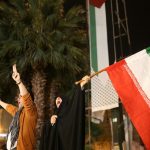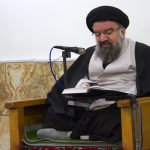A Lebanese newspaper wrote that the UN special envoy is considering options to extend the current ceasefire in Yemen.
Faraan: The two-month ceasefire in Yemen began on the 13th of April this year (1400), but it was on the 12th of June that the UN envoy for Yemen affairs, Hans Grundberg, announced that the parties involved in Yemen agreed to the same terms as the original agreement that the ceasefire would last for another two months as it would be extended till August 11.
‘Al-Akhbar’ newspaper reported that the Saudi-Emirati coalition does not have many options to get the agreement of the leaders of Sana’a to extend the ceasefire, and Sana’a is completely against extending it in its current form. Hans Grundberg, the UN special envoy for Yemeni affairs, also said in a statement on Friday about the difficulty of extending the ceasefire and pointed out some shortcomings in its full implementation.
In the continuation of this report, there is no difference between the option of extending the ceasefire and not extending it, although the United Nations estimates lean towards the first option, especially in the light of the efforts made to resolve the case of government employees and the desire of the United States to maintain the ceasefire. The leaders of Sana’a are also eager to maintain peace, but they attach great importance to the issue of lifting the blockade, and for this issue, they have many options of power at their disposal.
Al-Akhbar added, “Sana’a believes that getting close to the requirements of real peace and above all the lifting of the blockade, at least requires the payment of employees’ salaries, the removal of all restrictions at Sana’a airport and Hodeidah port, including the cancellation of Saudi guardianship over flight permits, and the non-limitation of flights only to countries He is a supporter of the coalition and the non-seizure of oil tankers.”
This newspaper further wrote that Hans Grundberg is considering options to extend the ceasefire, including flights from Sana’a airport with more destinations, including Muscat, Baghdad and some Asian countries. Since the establishment of the ceasefire in Yemen, 20 round-trip flights have been made between Sana’a and Jordan and one round-trip flight between Sana’a and Cairo, and about eight thousand passengers have been transferred, while 36 flights were supposed to be made in four months. Additionally, while 36 fuel-carrying ships were supposed to enter Al-Hadid port during this period, only 26 ships were allowed to enter.
In this regard, Al-Sahafa Al-Iminiyah Lawyers announced last week that the coalition attacking Yemen has violated this temporary ceasefire 14,160 times during the 110 days of the ceasefire. According to Fars, the Foreign Minister of the National Salvation Government (based in Sana’a) said in an interview last Thursday that any ceasefire should lead to the improvement of the conditions of the Yemeni people and otherwise it cannot be called a ceasefire. He pointed out that Yemen does not accept the current conditions of neither war nor peace and wants to resolve the crisis in a way that benefits the Yemeni people and preserves their honor and dignity.










